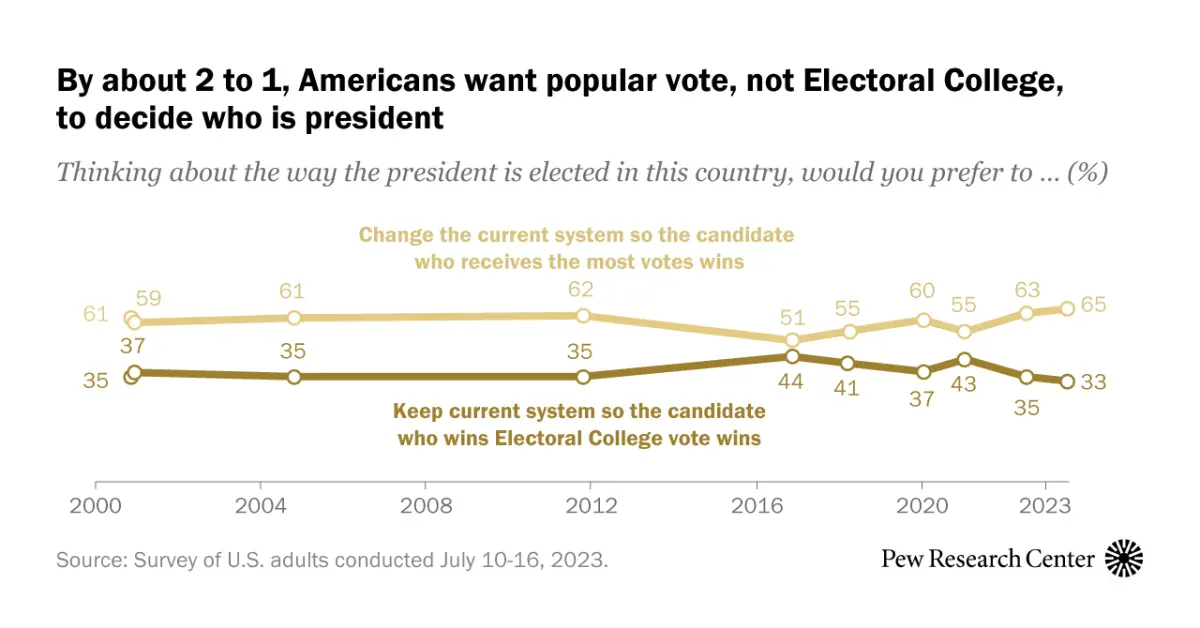Majority of Americans continue to favor moving away from Electoral College
Majority of Americans continue to favor moving away from Electoral College

www.pewresearch.org
Majority of Americans continue to favor moving away from Electoral College

65% of U.S. adults say the way the president is elected should be changed so that the winner of the popular vote nationwide wins the presidency.